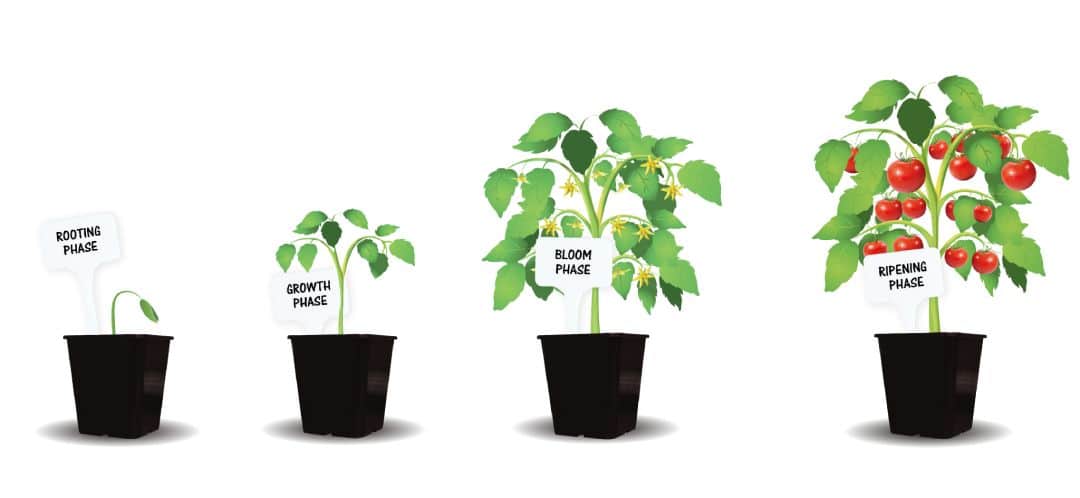How to give your seeds a good start
Germination is the first phase of a plant’s life cycle. To give your plants the best possible start in life, read on and find out exactly what happens to seedlings and what they need.

What do we mean by the germination phase?
During this phase a solid foundation is laid for what will, hopefully, grow into a beautiful and fruitful plant, which will give us a bountiful harvest. When the seeds germinate, the first tiny roots begin to develop. Most seeds germinate in the dark, in a reasonably warm place. However, some seeds germinate best in broad daylight, hence their name “light germinators”. Examples are lettuce, basil or dill, as stated in a RelationQue blog about light and dark germinators.
All seeds contain many nutrients that allow the seedlings to grow. However, even at this stage you can still help them as other important factors influence good growth.
What are the immediate needs of the plant?
As mentioned above, some seeds germinate in full daylight, while others prefer absolute darkness. This preference can vary considerably, so find out the requirements of your seeds. You can do so by reading the information on the packaging for example. Also, seeds need moisture and warmth (some more than others).
There are several ways to get seeds to germinate, such as by sowing directly in the garden or in a seedbed, or by using pots or seed trays. When sowing in pots or seed trays, it is best to use a substrate with a loose and airy structure where the roots will develop quick and strong. Atami offers Janeco Light Mix, which is a substrate enriched with perlite for extra aeration and is lightly fertilised. Sow your plants directly on it and they will develop healthy and strong roots right from the start.
Janeco Light Mix’s low EC is great for seeds and seedlings as they will have enough nutrients for the first couple of weeks, but without burning its tender roots. After that period, you can take over and feed the substrate with the fertiliser of your preference – it is recommended to start adding a root stimulator at this point.
How do I help the plant in this phase?
To ensure successful germination there are three essential conditions you should be aware of: water, oxygen, and temperature.
Firstly, the moisture level: too wet can mean fungus, too dry can mean the seed will dry out and will not germinate. So, make sure it is damp, not soggy!
Secondly, In relation to oxygen, as mentioned above, we must provide the plants with a light, aerated substrate to encourage oxygenation of the roots.
And last of all, the temperature: Generally, seeds benefit from a stable, warm temperature to germinate. There are also seeds that need to go through a period of intense cold – which is known as stratification – in which case, they can be put in the fridge for as long as necessary to trigger further germination. As always, the best thing to do is to find out what each type of plant needs, so that you can achieve a high germination rate for your seeds.
When the seed germinates, the first thing that is formed is roots. Clearly, this part of its development is of utmost importance as the roots anchor the plant to the substrate and absorb the water and nutrients necessary for plants’ growth.
To sum up, a strong root system provides the basis for a strong plant which means that it will bear more flowers and fruits. Atami root stimulator is created for well-developed and healthy roots. The root stimulators initiate the expansive growth of the root system and improve plants’ nutrients intake! We always say: great roots, better harvest!
How does the plant’s development continue?
We can distinguish several phases (or stages) in plant growth. If we are we can break these stages down even more specifically (such as pre-flowering, early flowering, late flowering…), but the essential stages of a plant’s development are these:
1. Germination and rooting phase.
2. Growth phase.
3. Flowering phase.
4. Ripening phase.

As you know, the germination and rooting phases are crucial, as without them there would be no plant to care for, but the other phases are just as important. In addition, each stage has its own characteristics, and as such, different needs and care. Atami offers you a wide range of products to help you give your plants what they need at every stage of their life so that they grow healthy and productive.

